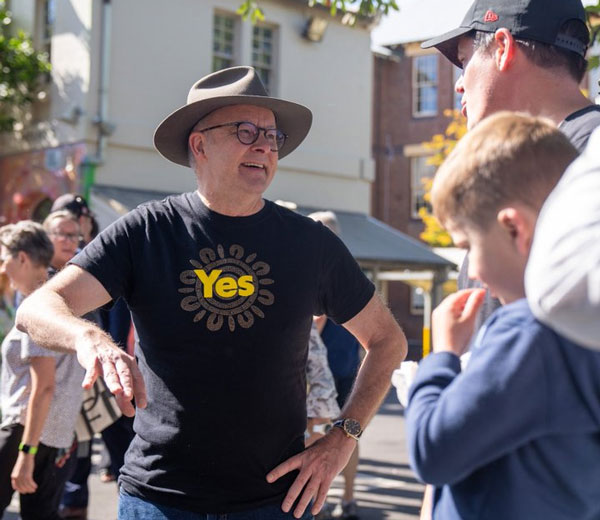
Canberra, Australia | Xinhua | Indigenous Australian leaders have identified “deep-seated racism” as a factor in the defeat of the Indigenous Voice referendum.
In a joint statement issued on Saturday, three of the four powerful land councils in the Northern Territory (NT) described the victory of the “no” vote in the referendum on Oct. 14 as an attempt to “silence” Indigenous Australians.
More than 60 percent of Australians voted against the proposal to recognize Aboriginal and Torres Strait Islander people in the nation’s constitution by establishing an Indigenous Voice, which would have advised the federal parliament on all issues affecting Indigenous communities.
Saturday’s statement, which ended a week of silence from Indigenous leaders and organizations, said the “mistakes of the past will be continued” following the defeat of the referendum.
“We recognize the result of the referendum cannot be separated from a deep-seated racism. It is fair to say that not everyone who voted ‘No’ is racist but also fair to say that all racists voted ‘No’,” the Northern Land Council, Tiwi Land Council and Anindilyakwa Land Council said.
“The vitriol and hatred that were part of the campaign existed prior to, but were given license through, the process. The overarching theory that we are incapable of managing our own affairs is dehumanizing and degrading and, most of all, deeply flawed.”
As of the 2021 Census Indigenous Australians made up 26.3 percent of the NT population – the highest proportion of any state or territory.
Collectively the three land councils represent Indigenous communities in the northern half of the mainland NT as well as the Tiwi Islands and Groote Eylandt off its north coast.
The land councils were established in the 1970s as independent authorities to give Indigenous people in the NT a voice on issues affecting their land, seas and community.
The Northern Land Council is the largest and oldest, having been set up in 1974 and currently representing 51,000 Aboriginal people.
Saturday’s joint statement said that data from the Australian Electoral Commission (AEC) showed that residents of Indigenous communities across the NT overwhelmingly supported the Voice proposal. ■
 The Independent Uganda: You get the Truth we Pay the Price
The Independent Uganda: You get the Truth we Pay the Price





